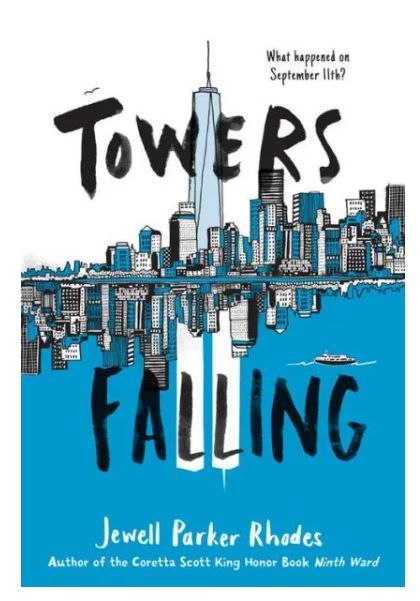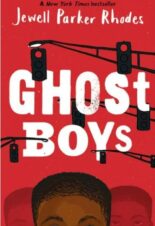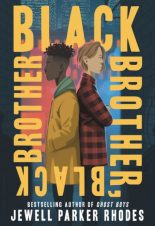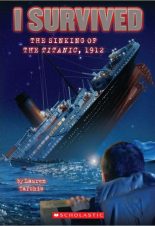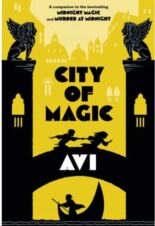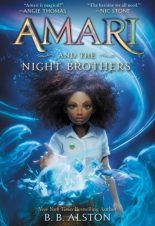Towers Falling
by Jewell Parker Rhodes
AR Test, Diverse Characters
8+
Score
3.3
256
Ten-year-old Dèja Barnes doesn’t like living at the shelter. She doesn’t like that her dad doesn’t work. And she definitely doesn’t like her new school, where they asked her to do projects on their homes and families. Dèja knows her dad is unwell and prone to violent mood swings, but it’s not until her class learns about September 11th that she begins to understand her dad has been hiding something from her.
In Towers Falling, the reader is taken on an introductory journey through the events and aftermath of 9/11 through the eyes of Dèja and her friends and family. Through Dèja’s friend, Sabeen, the reader learns about Islam and Islamophobia in the United States post-9/11. Through Dèja’s father, the reader witnesses the fear that enveloped that day, as her dad escaped the North Tower but lost his friends and colleagues.
Although much of the book is about American history, the most prominent recurring theme is community. Dèja makes connections and learns that community can be what you’re born into, like being American or feeling community with her family. But community can also be found, like in her friends or her school. Since Dèja’s story is also about poverty, she especially wants to be accepted by her classmates even if she pushes back at times. Ultimately, the book ends with Dèja feeling comfortable in her found communities and more connected to her dad when he finally shares his experiences.
Towers Falling helps readers understand the events of 9/11, especially for younger readers who were born after 9/11, much like Dèja and her friends were. Although the book doesn’t go too deep into exploring a lot of the discrimination that Sabeen’s family has experienced, Rhodes gives enough information for the reader to understand some of the inner workings of Islamophobia. The same can be said for Dèja’s dad’s mental health issues – although they’re mentioned, they aren’t the primary focus.
Towers Falling is a good story about community and it will inspire readers to explore these events in US history further. Dèja finds her communities and learns to embrace them, loving them for what they are. Through her, younger readers can start to understand what it means to treat others with compassion, regardless of skin color, nationality, religion, or any other difference. Readers who want to learn more about 9/11 should add Molly and the Twin Towers by Jessika Fleck and Somewhere Among by Annie Donwerth-Chikamatsu to their reading list.
Sexual Content
- None.
Violence
- Dèja hates her family’s cramped living situation. When her mom says that there’s no use complaining, Dèja thinks, “But it makes me want to burst, hit or break something.” Dèja has feelings like this throughout the book, as she’s frustrated that her family can’t do anything about their situation.
- While living in the homeless shelter, Dèja is always on edge. She says, “I walk the halls with fists ready.”
- During lunch, Dèja, Sabeen, and Ben share what they know about slavery and the genocide of the indigenous people of North America. Dèja mentions, “Apache. They were overrun. Killed. Their land was stolen.” The kids continue this conversation for several pages.
- Dèja accidentally scares her siblings when she mentions, “Pop doesn’t hit, but he’s still scary when he’s mad. And he can be mad about anything – coffee too cold, rain or no rain, wind, too little or too much, even paint on a shirt.”
- Towers Falling details the history of the events of 9/11 and how they connect to Dèja’s family. There are descriptions of violence and death associated with the events throughout the book. When Dèja asks about the Twin Towers, one student says, “Dead. They’re dead.” Another student says, “Like my cousin. I didn’t know him.”
- Ben shows Dèja videos of the Twin Towers burning. He says, “Terrorists attacked the Twin Towers on 9/11.”
- Dèja describes the contents of the 9/11 videos, saying, “Flames – yellow, orange, and red – bubble and lick . . . there’s no sound, but I know there must be people inside the tower hurt, screaming.” The video description lasts for several pages.
- Dèja is sent to the principal’s office and she thinks they’ll physically punish her. She thinks, “Maybe that’s where they have straps and whips? Paddles to punish kids?”
- Some kids bully Ray, Dèja’s younger brother. Dèja describes, “Sometimes one of them grabs Ray’s arms and swings him like a tetherball. Ray’s too terrified to scream. I’ve got to rescue him. Punch the big kid on his shoulder, yelling.”
- Dèja hears her dad crying at night. She thinks, “Last time I heard such a sound was when Mrs. Anderson’s son got shot by a drive-by. She was in the street, holding Eddie’s body.”
- Dèja, Ben, and Sabeen watch the planes crash into the Twin Towers. Dèja narrates what she sees, saying, “On the cell phone, the explosion is soundless, but I can imagine sounds – screaming, tearing, slicing through concrete, steel, and glass.” When the second plane hits, Dèja says, “People are falling – no, leaping – out windows. Escaping fire, heat. Suffocating heat.” This scene continues for a few pages.
- Dèja’s history class goes over various attacks made on American soil. The teacher, Mr. Schmidt, writes about the American Revolution, the War of 1812, and Pearl Harbor as examples. He also writes about the 1993 World Trade Center bombing. Mr. Schmidt clarifies for the class, saying it was “with a truck bomb. It failed.” This scene lasts for a few pages.
- Dèja’s dad tells her about what happened when he was working in the North Tower on 9/11. He says, “One, two, four, five, eight, ten flights of stairs. I was exhausted. Lungs aching. Still folks coming down, sounding like an elephant herd. Two men were carrying a man in a wheelchair. . . ” The description of his experience that day lasts for several pages.
Drugs and Alcohol
- Dèja talks about her experience in homeless shelters. She says, “Shelter gangs aren’t about guns and drugs. They’re about roaming, stealing, keeping an eye out for what can be taken.”
- Dèja describes the folks milling outside the homeless shelter. She says, “A few are a mess – dirty and stinky. Loud. Drinking beer wrapped in a paper bag.” Dèja occasionally describes some of the other homeless folks as “drunk.”
- Dèja’s dad takes aspirin for his illness, which is unnamed but related to his mental health issues and being in the Twin Towers when they were collapsing. Dèja mentions that “when we can afford it, he uses an inhaler.”
- At school, Dèja and her classmates build towers out of art supplies. Her friend Ben picks up a pipe cleaner and says, “Sherlock Holmes cleaned his pipe with these. Between smokes.” Dèja replies, “Sounds worse than cigarettes.”
- Dèja and Ben see a sign on the subway that says, “Have you spoken to your kids about drugs?”
Language
- Mild language is used often. Terms include dumb, loser, shut up, and nerd.
- Sabeen discusses her experiences with Islamophobia. Sabeen says, “When I’m at the store by myself, the cashier sneers, ‘Go back to Saudi Arabia.’ Turkey’s closer to Greece, two countries away from Saudi Arabia.”
- Dèja thinks about discrimination. She narrates, “I knew blacks were discriminated against. Also, poor people, homeless people. I didn’t know Muslims were too.”
- In history class, the teacher explains, “Al-Qaeda terrorists attacked the World Trade Center and the Pentagon. We call them terrorists because they are not representative of a single nation. Instead, they’re ideologues . . . narrow-minded people, incapable of independent thought and critical thinking. America has been engaged in a new kind of war . . . a war on terror.”
Supernatural
- Ben frequently mentions the media. At one point, he mentions that he wants to watch the Broadway musical Wicked, which is “about the witches of Oz.”
Spiritual Content
- One of the girls in Dèja’s class, Sabeen, “wears a headscarf.” Sabeen’s mother is described as being “covered head to toe in black cotton. Only brown eyes show.”
- Sabeen is asked why her mom wears all black. Sabeen explains, “It’s a niqab. For modesty.”
- As this book deals with the events of 9/11, there are somewhat frequent discussions about Islam. They are somewhat detailed, and often they revolve around the treatment of Muslims in the United States post-9/11. One student in Dèja’s class declares, “Muslims did it.” Dèja’s friend Sabeen, who is Muslim, says, “That’s not true. I mean it is but it isn’t true.”
- Sabeen shows Dèja and Ben a drawing of her family’s house. She says, “Home is divine. Blessed by Allah.” She then explains to Dèja that Allah is Arabic for God.
- Dèja mentions her own relationship with religion. She says, “Pop doesn’t believe in church. But before moving to Avalon, Ma would take me, Ray, and Leda to church.”
- Miss Garcia has the students list the social units they are part of, and the students list things like, “Church, Synagogue, Girl Scouts” and so on and so forth.
- Ben has to explain to Dèja that “it was terrorists. Muslim terrorists” that flew planes into the twin towers. This comes up because Dèja doesn’t understand why Sabeen is upset about 9/11.
- Sabeen has Dèja over to her house, and Sabeen’s family makes traditional Turkish food, and some discussions of Islam take place. For instance, Dèja is asked if she prays, and Dèja responds, “No. Just when Ma takes me to church . . . But I wish for things.”
- Ben makes a reference to C.S. Lewis’s Narnia series. When Dèja and Sabeen ask what it is, Ben explains to Sabeen that “It’s pretty Christian.” Sabeen responds, “A Muslim can’t read Christian stories? A Christian can’t read about Muslims?”
- Dèja’s dad talks about his experience in the North Tower on 9/11. He mentions a lady who always wore what he called church hats because they looked like “any second she was going to sing gospel.”
“History is relevant. Alive. Personal,” Dèja Barnes, –Towers Falling
Latest Reviews
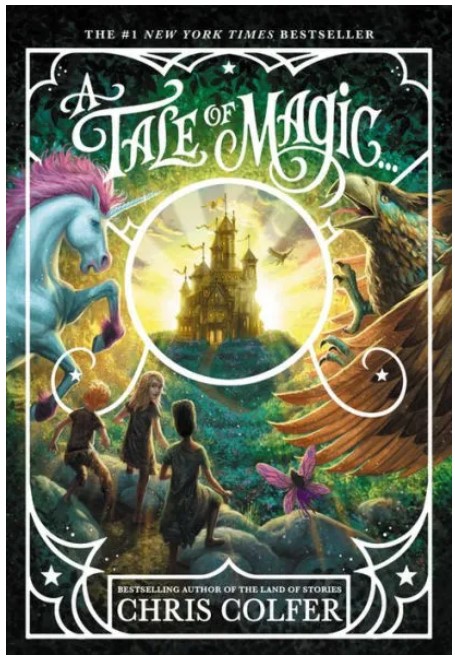
A Tale of Magic

The Immortal Fire

Grace Hopper: Queen of Computer Code

Girls Who Code: Learn to Code and Change the World

Alone

Friends Fur-Ever

Harry Houdini: A Magical Life

The Greedy Gremlin

Hoop Genius: How a Desperate Teacher and a Rowdy Gym Class Invented Basketball

